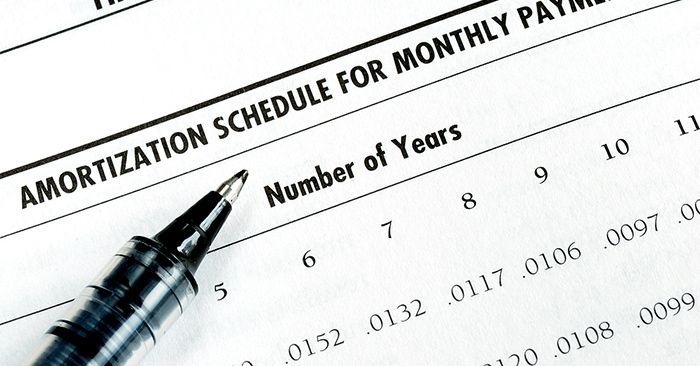Blog
My Blogs

Why So Many Homeowners Are Downsizing Right Now For a growing number of homeowners, retirement isn’t some distant idea anymore. It’s starting to feel very real. According to Realtor.com and the Census, nearly 12,000 people will turn 65 every day for the next two years . And the latest data shows as many as 15% of those older Americans are planning to retire in 2026. And another 23% will do the same in 2027. If you’re considering retiring soon too, here’s what you should be thinking about. Why Downsize? Now's the perfect time to reflect on what you want your life to look like in retirement. Because even though your finances will be going through a big change, you don’t necessarily want to feel like you’re living with less . But odds are, what you do want is for life to feel easier . Easier to enjoy. Easier to manage. Easier to maintain day-to-day. The Top Reasons People Over 60 Move You can see these benefits show up in the data when you look at why people over 60 are moving. The National Association of Realtors (NAR) finds the top 4 reasons aren’t about timing the market or chasing top dollar. They’re about lifestyle: Being closer to children, grandchildren, or long-time friends so it’s easier to spend more time with the people who matter most Wanting a smaller, more functional home with fewer stairs and easier upkeep Retiring and no longer needing to live near the office, so it’s easier to move wherever you want Opting for something smaller to reduce monthly expenses tied to utilities, insurance, and maintenance No matter the reason, the theme is the same: downsizing isn’t about giving something up. It’s about gaining control and choosing simplicity. And it brings peace of mind to know your home fits the years ahead, not the years behind. And the best part? It’s more financially feasible now than many homeowners would expect. The #1 Thing Helping So Many Homeowners Downsize Here’s the part that makes it possible. Thanks to how much home values have grown over the years, many longtime homeowners are realizing they’re in a stronger position than they thought to make that move. According to Cotality , the average homeowner today has about $299,000 in home equity . And for older Americans, that number is often even higher – simply because they’ve lived in their homes longer. When you stay in one place for years (or even decades), two things happen at the same time: Your home value has time to grow. Your mortgage balance shrinks or disappears altogether. That combination creates more options than you’d expect, even in today’s market. So, whether you just retired, or you're about to, it's not too soon to start thinking about what comes next. Sure, it can be hard to leave the house you made so many years of memories in, but maybe it’s time to close one chapter to open a new one that’s just as exciting. Bottom Line Downsizing is about setting yourself up for what comes next – on your terms. If retirement is on the horizon and you’ve started wondering what your current house (and your equity) could make possible, the first step isn’t selling. It’s understanding your options. Let’s talk. A simple, no-pressure conversation can help you see what downsizing might look like – and whether it makes sense for you.

You’ve probably seen the buzz lately about 50-year mortgages possibly hitting the U.S. market soon. If you haven’t come across it yet, you probably will—whether in a headline, a newsfeed scroll, or it’ll just be an option the next time you’re house hunting. At face value, it sounds like a pretty sweet deal for anyone feeling squeezed by prices and rates. Stretch the payments out over half a century, and suddenly that monthly bill looks a whole lot friendlier. What’s not to love, right? Well, that depends on your perspective. So before deciding whether this could be a game-changer or just another gimmick, let’s make sure you’ve got enough info to have an informed opinion… Lower Payments? Yes. Lower Costs? Not Exactly. For many, the appeal comes down to affordability. A longer loan term could help buyers qualify for homes that might otherwise be out of reach, or simply make monthly payments more comfortable. That part is true, but where there’s a “gimme” there’s a “gotcha.” While the monthly payment may drop, the total cost over time can skyrocket. Stretching a loan over half a century means paying additional interest for half a century. The “savings” you feel each month could easily be swallowed up—and then some—by what you’ll ultimately pay in interest. Just Another “New” Option A 50-year mortgage might sound new and exciting, but it’s really just another option that isn’t currently offered. (Well, at least not all that often.) Buyers already have plenty of choices when it comes to loan terms: 10-, 15-, 20-, and 30-year mortgages are all standard options. Add in the mix of fixed-rate and adjustable-rate structures, and you’ve got a wide range of combinations designed to fit different financial situations. But more often than not, people lean toward the 30-year fixed rate loans. Technically, 40- and even 50-year mortgages already exist, though they’re rare in the U.S. and typically not backed by government programs. According to The White Coat Investor , they’re far more common in Europe, where ultra-long-term loans have been part of the financial landscape for years. A Matter of Perspective Whether a 50-year loan sounds appealing often comes down to your personal philosophy, and your tolerance for long-term debt. Some buyers lean toward shorter-term loans—like 15 or 20-year mortgages—because they want to own their home free and clear sooner and pay less in interest. Someone taking this approach, especially with a 15-year fixed or adjustable-rate mortgage, is often very disciplined about paying extra each month to chip away at the principal. To them, the vast majority of people opting for a 30-year fixed loan might look like they’re squandering money by stretching payments out unnecessarily and paying far more interest than they need to. On the flip side, 30-year borrowers often see the world differently. They value lower monthly payments and the flexibility it provides—whether to invest elsewhere, cover lifestyle costs, or just have breathing room in the budget. To them, those who aggressively tackle a 15-year loan might seem either a little extreme… or just downright wealthy to be able to afford such high payments. So, just like 15-year buyers might shake their heads at 30-year loans, 30-year borrowers will likely question a 50-year term. The point is, there’s no “right” choice. It’s about what makes you comfortable financially and psychologically. Is It Worth the Monthly Savings? Whether the monthly savings makes sense really depends on your perspective and personal situation. Everyone’s circumstances are different, so this is a question only you can answer for yourself. When you’re considering what type of loan and terms to choose, you’ll need to crunch the numbers at that moment—current rates, your credit score, and other factors will all play a role. But to give you some general perspective, HousingWire did some math you might find useful. According to the article, stretching a loan out to 50 years might shave around $100–$200 off your monthly payment compared to a 30-year mortgage. That’s not nothing—it could make a tight budget feel a little more comfortable. However, because you’re paying interest for an extra 20 years (or more), the total cost over the life of the loan can balloon dramatically. In the examples they gave, the interest payments were more than double what they would have been with a 30-year loan. And we’re talking hundreds of thousands of dollars. That “nice little savings” each month comes at the expense of paying far more in the long run. So yes, you’ll feel relief each month with a lower payment, but over decades, your home ends up costing a lot more than the purchase price. That’s the trade-off. A 50-year mortgage isn’t inherently bad; it’s just a choice between short-term comfort and long-term savings. And it’s a choice worth thinking through carefully before signing anything. The Takeaway: The idea of a 50-year mortgage might sound like a silver bullet for housing affordability, but the reality is more nuanced. Sure, it could make monthly payments a bit lighter—but it could also cost much more in the long run and potentially nudge home prices even higher. As with most things in real estate, there’s no one-size-fits-all answer. It’s not necessarily right or wrong, it’s about what’s right for you. The key is to understand exactly what you’re signing up for before committing to a loan that could last longer than most careers.

A recent Realtor.com article explored whether single-family or multifamily homes build wealth faster. Spoiler alert: it’s single-family homes. At least, that’s what the data suggests. But if you take that at face value, it can make buying a multifamily property sound like a bad decision. The truth is, there’s no way to say that’s absolutely true. Real estate values depend on too many variables to base such a big decision on a headline—or even on solid data that might be right most of the time. The right property, at the right price, in the right market could easily turn that claim on its head. The bigger question isn’t which property type performs better on average. It’s which one makes the most sense for you. For plenty of buyers, a multifamily property can actually help them build equity faster than if they bought a single-family home. In fact, it could be a smarter financial and lifestyle decision for you even if it doesn’t build more equity as quickly. Because for a growing number of buyers, it’s not just about which type of home builds equity faster. It’s about which one fits the needs of their family, or simply makes owning a home at all possible. Is a Multifamily Home Right for You? There are plenty of reasons someone might choose a multifamily property over a traditional single-family home, and it doesn’t always have to be about chasing rental income or investment returns. Of course they’re often owned by investors who are using them to generate income and build wealth, but here are a few types of buyers that also could benefit from buying one: Buyers who can’t quite make the numbers work on a single-family home. For many people, buying a single-family home just isn’t realistic right now. A duplex or triplex can make the math work by generating income from the other units. That rental income can help cover a big portion of the mortgage, sometimes bringing monthly costs down to what they’d pay in rent—or even less. First-time buyers who want to get into the market sooner rather than later. Instead of waiting and saving for years to afford a single-family home, buying a small multifamily property can be a faster entry point. Living in one unit allows you to qualify for a primary residence mortgage, which often comes with better terms than an investor loan. Multigenerational families who need both space and proximity. More families are living together these days, but that doesn’t mean everyone wants to share the same kitchen. (Or more importantly…bathrooms!) Multifamily homes let extended families live under one roof while still having privacy and independence. Buyers who want to turn their first home into a long-term investment. A multifamily home can be a stepping stone. Live in one unit for a few years, build equity, and when you’re ready to move into a single-family home, you can keep the multifamily as an income-producing property. People who simply like the flexibility. Life changes. Maybe you’ll rent out a second unit now, and in the future use it for aging parents, college kids, or a home office. Owning a property with built-in options gives you more ways to adapt as your needs evolve. Making the Best Choice Starts With an Open Mind… And Some Advice Whether you thought owning a house at all was out of the question, or buying a single-family home has been your goal, it’s worth keeping multifamily properties on your radar. They’re not just for investors or people chasing rental income—they can be a practical solution for buyers who want to own now, manage costs, and maintain flexibility for the future. The key is exploring your options thoughtfully. Every property and every market is different. What makes sense for one buyer might not for another, and the “right” choice isn’t always obvious from a quick search or a headline. That’s where a local real estate agent can make a big difference. An experienced agent can help you assess your personal situation, run the numbers on different properties, and identify which type of home aligns with your goals and lifestyle. They can also point out opportunities you might not have considered—like duplexes or triplexes in neighborhoods you already like, or properties with flexible layouts that can accommodate extended family or generate rental income. Thinking broadly and consulting an agent early on can turn what feels like a daunting decision into a clear, practical plan. Instead of limiting yourself to single-family homes, exploring multifamily options could reveal a path to homeownership you didn’t realize was available. The Takeaway: Recent data suggests that buying a single-family home will help you build equity faster than you would if you bought a multifamily. However, choosing between the two isn’t just about which one builds equity faster. It’s about what makes the most sense for your personal situation, your family’s needs, and your path to homeownership. For many buyers, multifamily properties can offer a practical, flexible, and even more attainable way to own a home today—while also creating opportunities for rental income, long-term investment, and adaptable living arrangements. The key is keeping an open mind and exploring your options. A local real estate agent can help you navigate the possibilities, run the numbers, and identify the right property for your goals.

Why Rising Foreclosure Headlines Aren’t a Red Flag for Today’s Housing Market If you’ve seen headlines saying foreclosure activity has been climbing for 10 straight months , it’s easy to assume that's a sign of trouble for the housing market. But when you look at the full picture, a few simple truths become clear: Today’s foreclosure numbers are in line with what’s considered normal High home equity is keeping most homeowners in a strong financial position None of the data points to a big wave of distressed sales that’ll crash the market Foreclosure Filings Are Up 32%, But That Doesn’t Mean the Market’s in Trouble If you peel the layers all the way back, what everyone is actually worried about is that we’re headed for a repeat of what happened in 2008. Back then, riskier lending practices and an oversupply of homes for sale brought home prices down and led to a significant increase in foreclosures. A lot of people felt the impact. But this isn’t the same situation. Yes, ATTOM data shows foreclosure filings are up 32% year-over-year. And that increase is going to sound dramatic. But context matters, and it doesn’t mean we’re headed for another crash. And the numbers prove it. Take a look at where we were during the last crash (the red in the graph below). And where we are now (the blue): Even with the uptick lately, we are still nowhere near crash levels – far from it. This isn’t a return to crisis levels. What it is, is a return to normal. The graph below shows foreclosure filings going all the way back to early 2005. The lead up to, and the aftermath of, the crash is there in red. Those are the years when foreclosure filings went above the 1 million mark each year. Now, look at the right side and scan back to the 2017–2019 range (the last truly normal years for housing). You’ll see we’re actually just starting to fall back in line with what’s typical for the market, even with the increase lately: Rob Barber, CEO at ATTOM, explains it well: “ Foreclosure activity increased in 2025, reflecting a continued normalization of the housing market following several years of historically low levels . . . While filings, starts, and repossessions all rose compared to 2024, foreclosure activity remains well below pre-pandemic norms and a fraction of what we saw during the last housing crisis . . . today’s uptick is being driven more by market recalibration than widespread homeowner distress, with strong equity positions and more disciplined lending continuing to limit risk.” The word “normalization” in that quote is extra important. While economic and financial pressures are putting a strain on some homeowners, this isn’t a flood of distressed homes. No matter what the headlines may have you believe, this isn’t a large-scale crisis. Today’s increase isn’t a sign of trouble. It’s a return to normal. Why This Isn't a Repeat of 2008 Even though the last housing crash still shapes how a lot of people interpret today’s news, the reality is, this is a different market: Lending standards are stronger Borrowers are more qualified And homeowners have far more equity And that equity piece is especially important. Over the last five years, home prices have risen significantly. For many people, their house is worth far more than they paid for it. That means most homeowners have a strong financial cushion to fall back on, if needed. Basically, if someone faces hardship today, they often have the option to sell, and maybe even walk away with money in their pocket, instead of going through foreclosure. That’s a major contrast to 2008, when many homeowners owed more than their home was worth. Bottom Line Foreclosure activity may be rising, but it’s still well within a normal range – and nowhere close to the danger zones of the past. But the headlines are doing more to terrify than clarify. And that’s exactly why having a trusted real estate expert you can call on is so important. When you hear something in the news or see something on social about housing that worries you, please reach out so you have the context to understand what’s really happening and how it impacts you (if at all).

Home Updates That Actually Pay You Back When You Sell Planning to sell this spring? While you may be tempted to hold off until the first blooms or the spring showers hit, that's actually waiting too long to get started by today’s standards. Buyers have more options than they did a few years ago. So, it's worth it to tackle repairs now and make sure your house is set up to stand out. Because you don’t want to be caught scrambling right before the spring rush. Or, running out of time to do the work your house really needs. The key is focusing on updates that actually matter. And that’s exactly where return-on-investment (ROI) data comes in handy. Which Projects Tend to Pay Off? Every year, Zonda looks at which home improvements deliver the most bang for the buck when you go to sell the home. And the results can be a little surprising. The green in the chart below shows the updates where sellers have the biggest potential to add value based on that research: While there's a wide range of projects represented in this data, the cool part is, some of the top winners aren’t big to-do's. They’re just swapping out doors. Small Updates, Big Visual Impact This goes to show little projects can have a big impact. So, you don’t have to spend a fortune. And you don’t need to tackle everything on this list. But in today’s market, doing nothing can work against you. Now that buyers have more homes to choose from, a lot of them are going to opt for what’s move-in ready. The best advice? Focus on what your house needs, whether it’s listed here or not – like the repairs you’ve been putting off. A front door or shutters in need of a little TLC. Piles of leaves in the yard. Scuffed up paint where your kids play inside. Those details matter too. Mallory Slesser, Interior designer and Home Stager, explains it to the National Association of Realtors (NAR) this way: “If you’re looking for affordable updates that pack a punch, dollar for dollar, I would say painting; changing out light fixtures; changing out hardware; maybe new draperies or window treatments. Those are all cost-effective ways to make a big statement. It really changes the space.” These seemingly small things help buyers focus on the home itself – not the work they think they’ll have to do after moving in. And that’s paying off for other sellers. Buyers are often willing to spend more on homes that feel well cared for, updated, and move-in ready. This Chart Is a Starting Point, Not a Strategy Here’s the important thing to remember. National data like this is a guideline. Buyer preferences are going to vary by location, price point, and even neighborhood. That means a project that boosts value in one area might be unnecessary (or even overkill) in yours. That’s why the first step should always be to talk with a local real estate professional before you start. An experienced agent can help you answer questions like: Which updates do buyers in your market expect? What can you skip without hurting your sale? Where will a small investment make the biggest difference? Is it better to update, or sell as-is ? That guidance helps you avoid over-improving and under-preparing. Bottom Line If you’re looking to sell this spring, you still have time to make updates that help your home stand out – without taking on a full renovation. If you’re not sure where to start, let’s talk through what makes sense for your house. A quick conversation can help you prioritize the updates that’ll pack the biggest punch. What’s one upgrade you’ve been thinking about – and wondering if it’s worth it?

Are Big Investors Really Buying Up All the Homes? Here’s the Truth. It’s hard to scroll online lately without seeing some version of this claim: “Big investors are buying up all the homes.” And honestly, if you’re a homebuyer who’s lost out on a few offers, that idea probably sounds believable. When homes are expensive and competition is tight, it’s easy to assume giant companies are scooping everything up behind the scenes. But here’s the thing: what people assume is happening and what the data actually shows aren’t always the same. Let’s look at what’s really happening with large institutional investors in today’s housing market – because the numbers tell a much different story than the headlines. The Number Most People Won’t See Online Let’s start with the most important stat. According to John Burns Research & Consulting (JBREC), large institutional investors – those that own 100 or more homes – made up just 1.2% of all home purchases in Q3 of 2025 (see graph below): That’s it. Out of every 100 homes sold, only about 1 went to a large institutional investor. And here’s an important point that often gets missed: that level of investor activity is very much in line with historical norms. It’s not unusually high, and it’s actually well below the recent peak of 3.1% back in 2022 – which itself was still a small share of the overall market. So, while it can feel like big investors are everywhere, nationally, they’re a very small part of overall home sales. Why Investor Activity Gets So Much Attention There are two main reasons this topic gets so much attention: Investor activity isn’t spread evenly. Investors are more active in certain markets, which can make competition feel intense for homebuyers in those areas. As Lance Lambert, Co-Founder of ResiClub, explains:“On a national level, “large investors”—those owning at least 100 single-family homes—only own around 1% of total single-family housing stock. That said, in a handful of regional housing markets, institutional and large single-family landlords have a much larger presence. ” Investor is a broad term. Part of what makes the share of purchases bought by investors sound so big is because many headlines lump large Wall Street institutions together with small, local investors (like your neighbor who owns one or two rental homes). But those are very different buyers.In reality, most investors are small, local owners, not massive corporations. And when all investors get grouped together in the headlines as a single stat, it inflates the number and makes it seem like big institutions are dominating the market (even though they’re not). Yes, big investors exist. Yes, they buy homes. But nationally, they’re responsible for a very small share of total purchases – far smaller than most people assume. The bigger challenges around affordability have much more to do with supply, demand, and years of underbuilding than with large institutions competing against everyday buyers. That’s why it’s so important to separate noise from reality, especially if you’re trying to decide if now is the right time to move. Bottom Line If you want to talk through what investor activity actually looks like in our local market, and how it impacts your options (or doesn’t), let’s connect. Sometimes a little context makes all the difference.

It’s a new year, and if buying a home in 2026 is on your mind, there’s one simple piece of advice worth hearing first: get started now. Not in March. Not in spring. Not “when the weather gets better.” Now. Why? For starters, buying a home takes time. A recent Realtor.com article suggests getting started at least six months before you plan to close. That doesn’t mean starting in January automatically puts you on track for a June closing. In fact, if you get started now, there’s a good chance you could be in a home much sooner than that. On the flip side, even if you don’t plan to move until later in the year, beginning the process early still puts you in a far stronger position when you’re ready to make offers. You’re almost always better off starting sooner rather than later. There’s a lot involved beyond simply finding a house you like. Financial preparation, getting pre-approved for a mortgage, understanding what you can truly afford, getting a handle on the existing inventory, touring homes, writing offers, negotiating terms, and finally closing — all of that takes time. And that’s before factoring in local competition and inventory. But as we head into this new year, there’s another reason starting early matters even more — and it has everything to do with what’s happening in the market right now… It’s Finally a Buyer’s Market in Many Areas… But It Might Not Last One of the biggest reasons to begin in January is where the market stands right now. In many areas, conditions are unusually favorable for buyers — and that’s not something to assume will stick around. According to recent housing market data , there were roughly 37% more sellers than buyers across the U.S. in November 2025, one of the largest gaps on record going back to 2013. A gap that large can give buyers more negotiating power. It often leads to more options, more time to consider choices, and greater leverage when it comes to price, terms, and requests for seller concessions. But that gap can easily close. Many buyers put off looking for a home until the spring market “officially” begins. That’s in quotation marks because there really is no official date for when the spring market begins. But at some point in the next few months, there will likely be a surge of buyers entering the market. When that happens, competition will increase and many of the advantages buyers enjoy early in the year will likely begin to shrink. Buyers who wait may find themselves facing more multiple-offer situations, tighter negotiations, and less room to ask for concessions. Getting started in January doesn’t just give you a head start — it gives you a shot at taking advantage of conditions that may look very different just a few months from now. The First Thing to Do After the First of the Year If you’re even just thinking about buying a home in 2026, the most productive first step after the new year isn’t scrolling listings or heading out to open houses — it’s having a conversation with a local real estate agent. National headlines are helpful for understanding broad trends, but real estate is extremely local. Conditions can vary dramatically from one city to the next, from one neighborhood to another, and even from one price range to another within the same town. An agent can walk you through what inventory looks like right now, how competitive buyers are in your target price range, and whether sellers are negotiating or still holding firm. They can also help you come up with a timeline and strategy based upon your personal situation and the current market conditions. The Takeaway: Buying a home almost always takes longer than people expect. That’s why many experts recommend starting the process at least six months before you plan to move. That doesn’t mean it has to take that long — plenty of buyers find and close on a home much sooner. But it does mean that giving yourself time is rarely a bad idea. Starting as early in the year as possible is always smart, but starting early in 2026 may be even smarter. With roughly 37% more sellers than buyers — the largest gap we’ve seen since 2013 — today’s market is offering buyers opportunities that may not last once more people jump in later this year. Waiting until spring could mean more competition and fewer advantages than buyers see right now. If you’re even thinking about buying in 2026, getting the ball rolling in January can put you in a much stronger position. And the best first step isn’t browsing listings — it’s talking with a local real estate agent who can explain what’s happening in your market, help you set realistic.

Why So Many Homeowners Are Downsizing Right Now For a growing number of homeowners, retirement isn’t some distant idea anymore. It’s starting to feel very real. According to Realtor.com and the Census, nearly 12,000 people will turn 65 every day for the next two years . And the latest data shows as many as 15% of those older Americans are planning to retire in 2026. And another 23% will do the same in 2027. If you’re considering retiring soon too, here’s what you should be thinking about. Why Downsize? Now's the perfect time to reflect on what you want your life to look like in retirement. Because even though your finances will be going through a big change, you don’t necessarily want to feel like you’re living with less . But odds are, what you do want is for life to feel easier . Easier to enjoy. Easier to manage. Easier to maintain day-to-day. The Top Reasons People Over 60 Move You can see these benefits show up in the data when you look at why people over 60 are moving. The National Association of Realtors (NAR) finds the top 4 reasons aren’t about timing the market or chasing top dollar. They’re about lifestyle: Being closer to children, grandchildren, or long-time friends so it’s easier to spend more time with the people who matter most Wanting a smaller, more functional home with fewer stairs and easier upkeep Retiring and no longer needing to live near the office, so it’s easier to move wherever you want Opting for something smaller to reduce monthly expenses tied to utilities, insurance, and maintenance No matter the reason, the theme is the same: downsizing isn’t about giving something up. It’s about gaining control and choosing simplicity. And it brings peace of mind to know your home fits the years ahead, not the years behind. And the best part? It’s more financially feasible now than many homeowners would expect. The #1 Thing Helping So Many Homeowners Downsize Here’s the part that makes it possible. Thanks to how much home values have grown over the years, many longtime homeowners are realizing they’re in a stronger position than they thought to make that move. According to Cotality , the average homeowner today has about $299,000 in home equity . And for older Americans, that number is often even higher – simply because they’ve lived in their homes longer. When you stay in one place for years (or even decades), two things happen at the same time: Your home value has time to grow. Your mortgage balance shrinks or disappears altogether. That combination creates more options than you’d expect, even in today’s market. So, whether you just retired, or you're about to, it's not too soon to start thinking about what comes next. Sure, it can be hard to leave the house you made so many years of memories in, but maybe it’s time to close one chapter to open a new one that’s just as exciting. Bottom Line Downsizing is about setting yourself up for what comes next – on your terms. If retirement is on the horizon and you’ve started wondering what your current house (and your equity) could make possible, the first step isn’t selling. It’s understanding your options. Let’s talk. A simple, no-pressure conversation can help you see what downsizing might look like – and whether it makes sense for you.

You’ve probably seen the buzz lately about 50-year mortgages possibly hitting the U.S. market soon. If you haven’t come across it yet, you probably will—whether in a headline, a newsfeed scroll, or it’ll just be an option the next time you’re house hunting. At face value, it sounds like a pretty sweet deal for anyone feeling squeezed by prices and rates. Stretch the payments out over half a century, and suddenly that monthly bill looks a whole lot friendlier. What’s not to love, right? Well, that depends on your perspective. So before deciding whether this could be a game-changer or just another gimmick, let’s make sure you’ve got enough info to have an informed opinion… Lower Payments? Yes. Lower Costs? Not Exactly. For many, the appeal comes down to affordability. A longer loan term could help buyers qualify for homes that might otherwise be out of reach, or simply make monthly payments more comfortable. That part is true, but where there’s a “gimme” there’s a “gotcha.” While the monthly payment may drop, the total cost over time can skyrocket. Stretching a loan over half a century means paying additional interest for half a century. The “savings” you feel each month could easily be swallowed up—and then some—by what you’ll ultimately pay in interest. Just Another “New” Option A 50-year mortgage might sound new and exciting, but it’s really just another option that isn’t currently offered. (Well, at least not all that often.) Buyers already have plenty of choices when it comes to loan terms: 10-, 15-, 20-, and 30-year mortgages are all standard options. Add in the mix of fixed-rate and adjustable-rate structures, and you’ve got a wide range of combinations designed to fit different financial situations. But more often than not, people lean toward the 30-year fixed rate loans. Technically, 40- and even 50-year mortgages already exist, though they’re rare in the U.S. and typically not backed by government programs. According to The White Coat Investor , they’re far more common in Europe, where ultra-long-term loans have been part of the financial landscape for years. A Matter of Perspective Whether a 50-year loan sounds appealing often comes down to your personal philosophy, and your tolerance for long-term debt. Some buyers lean toward shorter-term loans—like 15 or 20-year mortgages—because they want to own their home free and clear sooner and pay less in interest. Someone taking this approach, especially with a 15-year fixed or adjustable-rate mortgage, is often very disciplined about paying extra each month to chip away at the principal. To them, the vast majority of people opting for a 30-year fixed loan might look like they’re squandering money by stretching payments out unnecessarily and paying far more interest than they need to. On the flip side, 30-year borrowers often see the world differently. They value lower monthly payments and the flexibility it provides—whether to invest elsewhere, cover lifestyle costs, or just have breathing room in the budget. To them, those who aggressively tackle a 15-year loan might seem either a little extreme… or just downright wealthy to be able to afford such high payments. So, just like 15-year buyers might shake their heads at 30-year loans, 30-year borrowers will likely question a 50-year term. The point is, there’s no “right” choice. It’s about what makes you comfortable financially and psychologically. Is It Worth the Monthly Savings? Whether the monthly savings makes sense really depends on your perspective and personal situation. Everyone’s circumstances are different, so this is a question only you can answer for yourself. When you’re considering what type of loan and terms to choose, you’ll need to crunch the numbers at that moment—current rates, your credit score, and other factors will all play a role. But to give you some general perspective, HousingWire did some math you might find useful. According to the article, stretching a loan out to 50 years might shave around $100–$200 off your monthly payment compared to a 30-year mortgage. That’s not nothing—it could make a tight budget feel a little more comfortable. However, because you’re paying interest for an extra 20 years (or more), the total cost over the life of the loan can balloon dramatically. In the examples they gave, the interest payments were more than double what they would have been with a 30-year loan. And we’re talking hundreds of thousands of dollars. That “nice little savings” each month comes at the expense of paying far more in the long run. So yes, you’ll feel relief each month with a lower payment, but over decades, your home ends up costing a lot more than the purchase price. That’s the trade-off. A 50-year mortgage isn’t inherently bad; it’s just a choice between short-term comfort and long-term savings. And it’s a choice worth thinking through carefully before signing anything. The Takeaway: The idea of a 50-year mortgage might sound like a silver bullet for housing affordability, but the reality is more nuanced. Sure, it could make monthly payments a bit lighter—but it could also cost much more in the long run and potentially nudge home prices even higher. As with most things in real estate, there’s no one-size-fits-all answer. It’s not necessarily right or wrong, it’s about what’s right for you. The key is to understand exactly what you’re signing up for before committing to a loan that could last longer than most careers.




